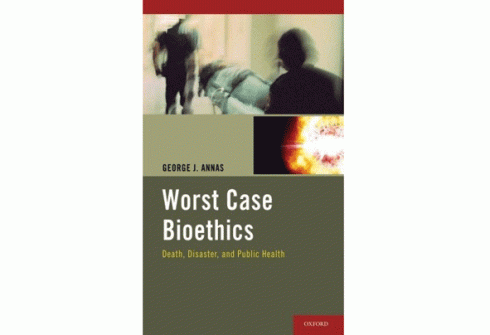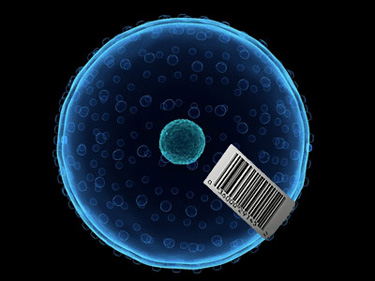Moral criticisms often get thrown at big pharma, for reasons I don’t really need to go through here. The same can be said for the regulatory procedures governing what drugs make it to market, and who gets them. Things aren’t necessarily so simple as is often made out, though- it just doesn’t come down to blindly following rules and disregarding compassion, as so many commenters blithely shout. So, what I’m gonna do is attempt to demonstrate that while both policy and morality are essential for regulating pharmaceuticals, the latter is determinative of the fundamental nature of regulation; and that without morals it would be impossible to interpret standards set to maintain successful governance of the industry. Big talk, for sure.
Morality in pharmaceutical regulation
29 JanYeah, so about that hiatus…
28 JanAlright, here it is.
I’d like to apologise, as I have mentioned several times on twitter, for the sheer lack of activity on Biojammer since December.
All I can say, really, is that it has been a very busy time, in which researching articles and then translating my fevered scrawlings into legible and coherent prose just hasn’t really been feasible.
Which, I’m aware, sounds like a big ol’ excuse. And perhaps it is, to be honest. The holiday season was upon us, and then I found myself, all of a sudden, with a whole lot of deadlines looming. I was given some exceedingly kind advice by members of SIBLE to rejig a paper and then try submitting it to a particular journal, who will for now remain nameless (because their submission process and referencing style guide was, to say the least, perplexing). That was a much longer process than it probably warranted, but how great would it be to get published?
I have also, in the last quarter of an hour, finally completed the process for submitting my PhD proposal in totality. Twitterites may have followed this saga over the last few weeks, but that too has been something of a labour, due to a series of misunderstandings and miscommunications.
Still it’s done now, and in the lap of the gods. I had a meeting with a professor who was very encouraging, so let’s hope that it all works out and I can convince some rube wonderful organisation blessed with incisive foresight to throw me a grant. There have also been a variety of other projects I’ve been doing work for, some of which you might hear more about here soon; and some of which are moneymaking schemes, because I’m an impoverished wannabe academic and also I always wanted to swim in cash like Scrooge McDuck.
So, in short, it has been frantic times at Biojammer labs, and I sincerely apologise to the few of you who come here for my prattling. I genuinely appreciate every reader, and I always like having a banter about whatever gibberish I’m currently spouting. I’m just putting together something on morality and pharmaceuticals, which as it happens is mildly topical. Biojammer.com: your source for tangentially relevant polemics. Other than the Daily Mail, that is.
New post within the next 24 hours, I promise, and many more to come. I currently no longer have institutional access as the University of Sheffield has finally managed to shake me off its books, so the dense post style may have to change to accommodate my altered research circumstances, but I have one or two ideas I can work on for the moment.
Stay groovy.
Review: Worst Case Bioethics- George Annas
10 Dec
George J. Annas, Worst Case Bioethics: Death, Disaster and Public Health, Oxford University Press, 2011, Paperback, 335 pp., £27.50 r.r.p.
In Worst Case Bioethics, George Annas- a respected and well-known professor in health care, human rights and bioethics at Boston University- gives a broad account of the manner in which US public health policy has been and continues to be shaped over time by national responses to doomsday or worst-case scenarios, both real and posited. In doing so he aims to illustrate the manner in which ethically questionable practices and controversial decisions have been excused politically as defences against these often sensationalised eventualities. He also frames his discussion in the context of the American public’s fear of death as a concept, and their apparent unwillingness to accept it as an inexorable eventuality. Continue reading
How can we govern new life forms?
12 Nov‘Synthetic biology’ is an emergent scientific field with enormous potential for development and technological advancement. However, it also carries an equal capacity for risk and for harmful results to derive from the advancement of the science. Consequently, it is widely recognised in academic papers, political documents, and public discourse as requiring regulation on national and global levels, on both an ethical plane and as a safeguard.
Synthetic biology as a realised or projected field of research has existed for at least a hundred years.[ii] Today, we could attempt to define the science as “focus[sing] on the design and synthesis of artificial genes and complete biological systems, and on changing existing organisms, aimed at acquiring useful functions.”[iii] The advent of the technologies of DNA sequencing in the latter part of the 20th century and more recently of DNA synthesis[iv] have thrown the field into the spotlight as a major and realistic growth area, and have highlighted the absence of a cohesive regulatory methodology to unite the various disciplines involved.[v] Also noted to be absent is an intellectual property model pertaining to organisms or technologies arising from the field.[vi] Continue reading
Update: Science writing prize entry, version 2!
12 NovHere’s the edited piece I wrote for the 2012 Wellcome Trust/ Guardian Science Writing Competition. I was fortunate enough to be shortlisted, and I thank the Wellcome Blog for posting this edited version of the piece (which I have posted previously in unedited form) on their site- albeit along with the least flattering photograph I think I’ve ever had. I intend to do more writing of this type in the near future, so watch this space!
In depth: The rational patient
31 OctIf we are autonomous as people, then it follows that we’re going to make what we consider to be ‘good decisions’. We’re going to make those about our daily lives, our actions, and our healthcare. But does a good decision always have to be a rational one?
A good decision is the making of a value judgement- the Oxford English Dictionary defines a value judgement to be “an assessment of something as good or bad in terms of one’s standards or priorities”. It stands to reason that the inherent goodness of something can only be judged subjectively, reliant upon what the evaluator considers goodness to be. I would posit that any collective or societal understanding of goodness must be based in generally accepted social mores and principles of behaviour (yeah, it’s one of those posts). For instance, in a medical and health science environment I think I’m safe in suggesting that it would be considered ‘good’, or at least desirable, to follow the principle of beneficence and to work in favour of restoring or improving a patient’s health (unless it has been determined that this is contra to the patient’s best interests, but that’s a very different discussion). However, where you are making a decision for yourself, the subjective nature of goodness dictates that you can only make a truly good decision within your own self-perceived parameters- which is where the concept of rationality becomes vitally important to the equation. Continue readingDoes dignity matter in biotech?
25 OctThe idea that human dignity is an empty concept is not a new one. It has been suggested in academic works throughout the best part of the last two centuries that the use of the term is often nothing more than what Marx termed a “refuge (from history) in morality”. In 1837, Schopenhauer set precedent for this attitude in his analysis of Kant’s ‘Grounding for the Metaphysics of Morals’, wherein he described human dignity as the
” …shibboleth of all perplexed and empty-headed moralists. For behind that imposing formula they concealed their lack, not to say, of a real ethical basis, but of any basis at all which was possessed of an intelligible meaning…”
-from the tone of which we can perhaps infer that Schopenhauer, at least, saw how widespread and wide-ranging the term had become even then.
This is not to say, however, that merely because a view has been held by our intellectual forebears it must be so. I would argue that there are other moral concepts which we respect despite their being used conflicting rhetoric, ‘freedom’ being the most obvious, if slightly trite, example. Consider that while it would be generally agreed upon (in the West) to support the principle of freedom in terms of political agency, this freedom can be interpreted differently- for example, positive versus negative liberty. Regardless of your interpretation, having respect for this freedom is regarded as a solid, defined concept and a key feature in democracy.
The concept of respect for human dignity is different, and this is best illustrated by Schopenhauer’s assertion that the subject ‘…lack[s]… intelligible meaning…”.
So can we really respect a concept without a universally agreed definition? Academics of far greater provenance than I have attempted to work out of what might constitute human dignity, and many thousands of pages have been published in argument. That this debate continues is indicative of the scale of the difficulty that exists in validating the term, and it is worthy of note that possibly the most important- in that it was designed to guide future U.S. policy– review of the term, by the President’s Council on Bioethics in 2008, concluded that “…there is no universal agreement on the meaning of the term human dignity.” I’m not, therefore, going to try and give a definition myself; but it is of value to note that this meaning has gone from something defined and rather narrow in scope to Marx’s all encompassing moral shield, and to an undefined phrase at the core of various legislative documents today. Continue reading
In Depth: Enhanced and you don’t even know it
19 Oct
To understand why nobody can agree on what enhancements actually are, you have to recognise that the term is in itself academically divisive. There is great variability in the literature as to what it may refer, ranging from the relatively narrow scope given by a European Parliament Science and Technology Options Assessment (EP STOA)-
“a modification aimed at improving individual human performance and brought about by [specifically] science-based or technology-based interventions in the human body… Excluded… are improvements of human performance which are realised by the use of devices which are not implanted or not robustly fixed to the body”
-to the all-encompassing, as employed by Buchanan in his book Better than Human–
“an intervention- a human action of any kind- that improves some capacity (or characteristic) that normal human beings ordinarily have or, more radically, that produces a new one.”
Those seem pretty different!








![rational[1]](https://biojammer.com/wp-content/uploads/2012/10/rational1.gif?w=490)

